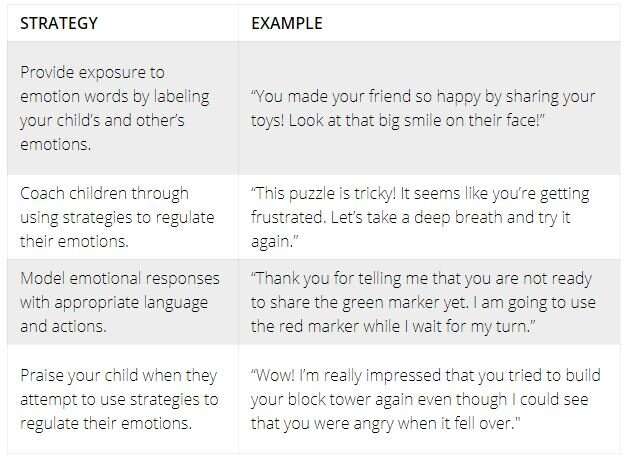
Some children enter school ready to learn. Others arrive with behavioral issues that limit their ability to succeed.
Following a selective review of published research on emotion regulation and school psychology, a team of College of Education researchers has begun building a guide to help parents and other caregivers tweak behaviors in the pivotal developmental ages of 2-5 so children enter kindergarten ready to learn.
“We have merged the theoretical findings related to the regulation of early childhood emotions with applied research from school psychology,” said Nicole Giuliani, an assistant professor in the Department of Special Education and Clinical Sciences. “To our knowledge this is the first time this has been done, even though there is a huge amount of overlap in these fields. We are aiming to put the literature into the same language.”
Many of the reviewed studies, the team noted, based their conclusions on limited data from short-term observations, and were framed in the language of the researchers’ respective fields. The team’s approach aims to help label emotions as they occur in ways that foster positive adult-child relationships during potentially frustrating situations.
The team’s paper, in a special issue of the journal Emotion on fundamental questions in emotion regulation, addresses many typical behavioral challenges. It is important, Giuliani said, to recognize emotions and provide boundaries.
“One of the unique things about this paper is we talk about how to use emotion regulation strategies to support your kids,” said Ellie Harrington, a doctoral candidate in Giuliani’s lab who led the research and had experience working with children and parents in school settings before arriving at the UO. “A lot of the literature we reviewed focused on how to down-regulate unwanted negative behavior.”
Among the examples is how a parent might redirect a child to reset frustrated emotions in a supportive way: “Let’s try taking a deep breath together. First, smell the flowers. Breathe in through your nose. Now blow the bubbles; blow out through your mouth.”

The paper also provides adaptive strategies for kindergarten and elementary school teachers to use either individually with a child or in small groups as part of existing tiered systems of support already in place.
Co-authors on the research were Shaina Trevino and Sheila Lopez, who are also doctoral students in Giuliani’s lab.
Expanding the modeling is part of Harrington’s dissertation.
“School mental health is a hot topic today,” Harrington said. “We are seeing more violence in schools, and, clearly, people are recognizing that we are not supporting kids’ mental health and emotional needs in schools as well as we should be doing.”
Preschool years, the researchers noted, are when executive functioning in the brain develops, allowing children to inhibit behaviors, regulate their attention and begin building working memory. Children who are emotionally unready for school often face peer rejection, negative relationships with teachers and dropping out.
Kindergarten brings together children whose early experiences are different, Giuliani said. Some have been to preschool, while others remained at home or with caregivers. Those differences can affect a child’s ability to perform when they enter classrooms and are expected to behave in similar ways, she added.
Source: Read Full Article
